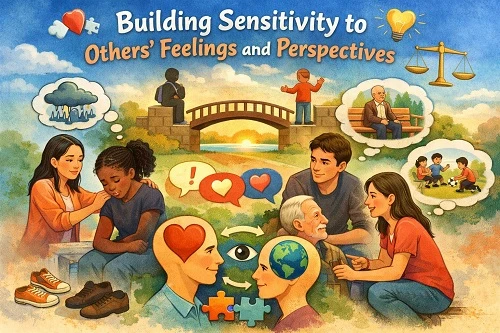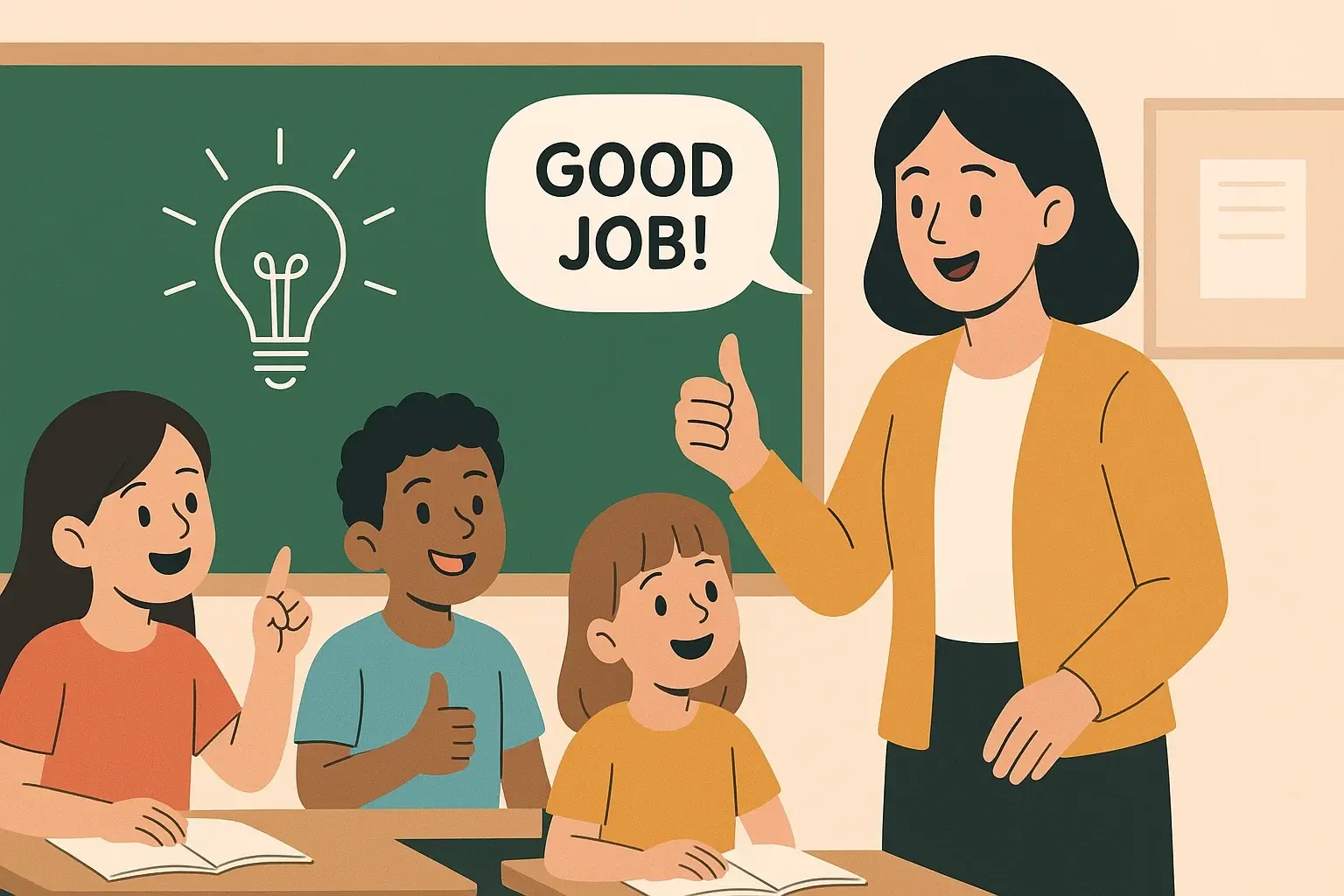
Understanding and respecting the feelings of others is an essential life skill that builds stronger relationships and creates a kinder, more compassionate environment. Developing sensitivity to others’ emotions and perspectives helps students connect meaningfully with people around them, fostering harmony both in school and daily life. At Ensure Education, we believe that emotional intelligence and empathy are not just traits—they are skills that can be nurtured. Through counselling, discussions, and interactive exercises, students learn to notice, respect, and respond thoughtfully to the emotions of others, laying the foundation for healthy communication, teamwork, and mutual understanding.
Sensitivity means being aware of how others feel and showing care in how we respond to them. Empathy, on the other hand, is the ability to imagine how someone else might feel in a situation. At Ensure Education, students are guided to distinguish between sympathy and empathy—understanding that empathy is about feeling with someone rather than feeling for them. Through storytelling, examples, and real-life situations, students learn to step into another person’s shoes, strengthening their ability to relate with kindness and respect. Recognizing and responding to emotions with sensitivity helps in creating a supportive classroom culture where everyone feels valued.
Active listening plays a major role in building emotional sensitivity. It means paying full attention when someone speaks—without interrupting, judging, or assuming. At Ensure Education, students learn that listening carefully helps them understand others’ emotions and viewpoints more accurately. We encourage eye contact, thoughtful body language, and gentle responses that show care and attention. By listening actively, students show respect and create trust in their interactions. This skill not only improves friendships but also helps prevent misunderstandings and conflicts, making communication more genuine and empathetic.
Sensitivity grows when students learn that everyone comes from different backgrounds, experiences, and beliefs. At Ensure Education, we emphasize the importance of appreciating diversity and respecting unique perspectives. When students understand that differences make the world richer, they become more open-minded and accepting. Through group discussions and collaborative activities, learners explore how others’ experiences shape their thoughts and feelings. This helps them avoid quick judgments and encourages them to see the world from multiple viewpoints—an essential part of developing emotional maturity and global awareness.
Understanding others’ feelings is not enough—it’s also important to respond with compassion. Compassionate responses show that we truly care and are willing to help. At Ensure Education, students learn how to express concern, offer support, and use kind words to comfort others. They also practice managing their tone and reactions so that their responses are thoughtful and respectful. When students act with compassion, they strengthen their relationships, reduce conflicts, and create a positive environment where everyone feels emotionally safe and understood.
Role-play is an effective method for helping students experience different emotions and viewpoints. At Ensure Education, we use interactive activities where students act out real-life scenarios—such as resolving disagreements, helping a friend, or welcoming a new classmate. These exercises help students practice emotional awareness and build sensitivity in a fun and engaging way. By stepping into someone else’s role, they learn to interpret nonverbal cues like facial expressions, tone, and body language, developing a deeper understanding of human emotions and behaviors.
Developing sensitivity is closely tied to emotional intelligence, which includes self-awareness, empathy, and effective communication. At Ensure Education, students learn to reflect on their own emotions while understanding how their actions affect others. Through mindfulness and guided discussions, they strengthen their ability to view situations from different perspectives. This practice of perspective-taking helps them become more patient, tolerant, and fair in their interactions. Emotional intelligence empowers students to make thoughtful choices, handle disagreements calmly, and build meaningful, respectful relationships.
At Ensure Education, we believe that emotional growth is as important as academic achievement. Our counselling sessions are designed to help students understand both themselves and others. We create a safe, encouraging space where learners can discuss emotions, share experiences, and build empathy through interactive techniques. Our trained counsellors use stories, reflective exercises, and group activities to teach sensitivity, emotional control, and understanding. Choosing Ensure Education means choosing holistic development—where students grow into confident, kind, and emotionally aware individuals ready to make a positive impact on the world.
Building sensitivity to others’ feelings and perspectives is the foundation of empathy, kindness, and strong relationships. When students learn to understand how others feel, they develop emotional depth and compassion. At Ensure Education, we help young minds see the world through others’ eyes, encouraging them to respond with care and respect. This emotional growth shapes them into thoughtful, confident individuals who contribute to a more understanding and inclusive society.

 Aug 19, 2025
Aug 19, 2025

 Aug 19, 2025
Aug 19, 2025